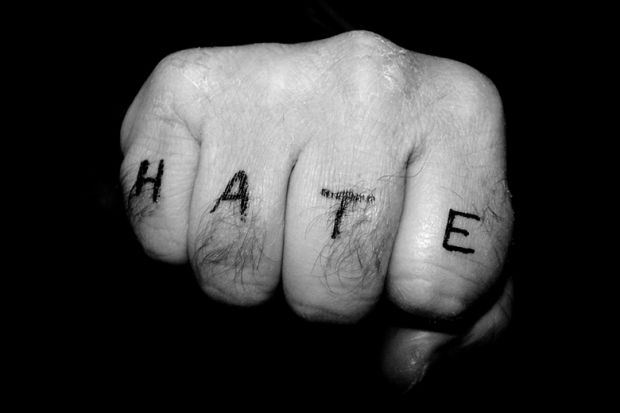Rates of religious-based hate crimes have increased on US college campuses over the past decade, and federal agencies are doing too little to help institutions respond, government auditors have concluded.
The number of on-campus religious-based hate crimes – mostly involving Jewish and Muslim targets – increased from 103 in 2009 to 189 in 2017, according to US Department of Education data cited in the analysis by the US Government Accountability Office.
The US Department of Justice, which tracks different measures, counted an increase from 24 to 59 over the same period, the GAO reported. Similar acts that don’t rise to the level of a crime also appear to be increasing, the GAO said.
Yet the Justice Department is failing to take a series of steps that could better inform work by college leaders to fight the problem, according to the GAO, which conducts its investigations at the request of members of Congress.
Those departmental shortcomings include a likely undercount of criminal acts, a failure to track non-criminal incidents, and a disjointed set of resources including badly outdated guidance on best practices among colleges.
Without better Justice Department efforts, the GAO said in a summary of its findings, colleges and their supporters “may miss opportunities to effectively use the resources to address these crimes and bias incidents”.
The issues identified by the GAO are part of a hate crime problem that’s nationwide and global, extending well beyond US college campuses. White supremacists were responsible for 39 of 50 domestic extremism-related killings across the US last year, compared with just one involving jihadists, according to a report by the Anti-Defamation League.
While the Department of Homeland Security was formed in response to the 9/11 attacks, it reached the point this year where it acknowledged white supremacist terrorism as a primary security threat.
That spreading problem clearly includes US colleges, the ADL said in a separate report that counted 313 incidents of on-campus white supremacist recruiting fliers, posters and stickers in the 2018-19 academic year, up seven from the previous year.
While the GAO only evaluates governmental actions, its new report on the Justice Department’s practices credited several institutions with developing effective responses to the threat of religious-based hate crimes on their campuses.
Such actions include teaching victims the definitions of hate crimes, encouraging and helping them to report incidents, offering them protections from retaliation, and educating staff on appropriate responses.
Justice Department officials told the GAO that they do share information and guidance about hate crime activity with colleges. But the GAO said that most groups it questioned on the matter – including college associations, religious groups and public safety organisations – said that they were unaware of the Justice Department’s efforts.
Register to continue
Why register?
- Registration is free and only takes a moment
- Once registered, you can read 3 articles a month
- Sign up for our newsletter
Subscribe
Or subscribe for unlimited access to:
- Unlimited access to news, views, insights & reviews
- Digital editions
- Digital access to THE’s university and college rankings analysis
Already registered or a current subscriber? Login







